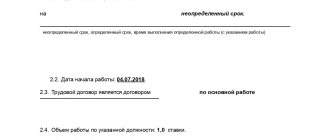Libel has always been a criminal offense. The exception was a short period when legislators decriminalized the composition and introduced administrative liability. However, after some time it was returned again in a more detailed version. Knowing how to prosecute for slander, a citizen who has suffered from the actions of a “well-wisher” who slandered him will still be able to punish him within the framework of the law.
What is the crime
Creating and disseminating deliberately false information about facts from the life of another person with the aim of harming him is the brief essence of the crime. It should be distinguished from defamation, which is a mixture of fiction and truthful information, while slander is deliberately false.
To make punishment for slander possible, the information must be:
- false;
- cause moral suffering, humiliation, and infringement of rights.
For example, wanting to take a higher position, a colleague spreads rumors that the person occupying it was caught in theft or theft, and cases of theft of material assets of employees began to appear in the company. In such a situation, we can talk not only about moral suffering, but also about real damage caused by dismissal.
Due to the popularization of the Internet, distributing any information is not difficult. This method is actively used in quarrels between spouses, friends and other people who have certain social connections with each other. However, it is difficult to find acceptable evidence of the dissemination of such information.
Representatives of law enforcement and other agencies that protect the law stand apart. There is a special article for slander and insult against them.
How to write a collective complaint against a teacher to the school principal (sample)
Sometimes parents decide to make one appeal. Thus, they want to express a general opinion about the unprofessional attitude of the teacher towards the students.
Usually the initiator of writing a complaint is one person. But often he finds support from other parents who decide to express their opinion on the current situation and join in filing a complaint.
The main stages of writing a collective complaint:
- The header contains information about the addressee and the person who is filing the complaint. This could be the following entry: parents of class 3A of secondary school No. 56 in Pskov;
- The main part of the complaint is a description of the essence of the complaint. Since the appeal is collective in nature, describe the problem in general or point out cases of teacher failure to comply with the norms and rules of communication with an individual child;
- At the end of the text, put the date the complaint was written and the signatures of all parents.
The collective complaint is accompanied by a list of parents who are filing a complaint. Their personal data, information about their place of residence and telephone numbers are recorded.
When writing this document, the pronouns “we” and “us” are used. Thus, the authors seem to emphasize that the document expresses their common opinion.
Note! When presenting the subject of the complaint, be sure to refer to the articles of the law (specify the clause, article, name of the law).
In general, the procedure for submitting a collective complaint is identical to that used for submitting an individual one.
Which authority should I contact?
How to prosecute for libel and where to go? The police and the magistrate have the power to prosecute. The composition in question refers to cases of private prosecution, which means that the victim himself initiates the process by contacting law enforcement agencies. But only the courts punish in criminal cases.
Speaking about the police, a reservation should be made; they deal with cases when:
- the offender is unknown;
- the action falls under Parts 2-5 of Art. 128.1 CC.
In ordinary cases, it is recommended to file a statement of libel in court. A sample of it can be viewed below.
Rejection of the request
If the claim is drawn up with errors, the court has the right to reject such an appeal
Considering that criminal proceedings involve serious proceedings, courts have the right to refuse to consider illiterately drawn up claims.
The second probable reason for rejection here is the insufficient evidence base collected by the plaintiff.
If the applicant does not provide specific evidence of the defendant's guilt, the court will refuse to proceed.
To minimize this outcome, it is advisable to use the legal services of practicing lawyers.
These people will competently fill out the necessary papers and collect evidence that directly indicates the defendant’s involvement.
But “savings” in such matters threatens to result in wasted time and nerves. Let us remind you that groundless accusations do not become a reason to admit that the plaintiff is right.
How to write a statement
Depending on where the application is addressed, the name of the court or the head of the police department is indicated. If the paper is sent to the prosecutor's office, they will not refuse to accept it, but will forward it to the police for further consideration.
Below is information about the applicant, full name, address, contact details. The name of the document is given: a statement of liability for libel.
In the main part of the statement, the citizen describes in detail how he was slandered with examples and evidence. If the culprit is unknown or there is only partial information regarding him, this fact must be highlighted. At the same time, you can ask to establish his identity. In relation to offenders on social networks, the page address is additionally entered.
If there are witnesses with important information, their full names, telephone numbers and addresses are indicated.
Collecting information
The legislation assumes the possibility of protecting citizens who have been subjected to unfounded attacks, because such violations provide for criminal liability.
A key step in preparing a formal complaint is evidence of defamation.
Unsubstantiated statements in the event of a trial end in losing the case.
In the case of collecting evidence, it is appropriate to find the motive for which the defendant disseminates false information.
Here, some of the likely options are personal hostility, a desire for career growth, or an attempt to “get rid of” an unwanted opponent.
However, the ignorance of the spreader of lies about the untruthfulness of such information automatically works in favor of this person.
Among the evidence, an important criterion is the testimony of eyewitnesses who heard gossip and are ready to refute such rumors.
However, finding like-minded people in such cases is not always possible. Let's figure out how to prove libel if there are no witnesses who are ready to speak in the courtroom. Here, means of recording information come to the aid of the injured person. If a citizen has been slandered by the media, a corresponding article or video with attribution must be attached.
It is appropriate to record the spread of false information in the workplace on a voice recorder or camera. In the case of virtual attacks on the Internet, it is advisable for the victim to take screenshots of the recordings and record the address of the site on which the unfair accusations “surfaced”. A particular difficulty in such cases becomes proof of the connection of a specific person to the information presented.
How will the culprit be punished?
What punishment will follow for the culprit depends on the actions he committed:
- An ordinary lie without aggravating circumstances is punishable by a fine or mandatory labor. Additionally, information about a criminal record will remain in the person’s history;
- dissemination of defamatory information through the media (newspapers, magazines, radio, TV, blogs, advertisements) doubles the sanction compared to the previous one (fine up to a million, work up to 240 hours);
- the use of official position will cost more in every sense - 2 million rubles;
- for misleading people about the presence of a dangerous disease, a sanction equal to 3 million rubles will follow;
- for lying about committing a crime, serious or especially serious, the fine can reach 5 million rubles.
In addition to the fine, the victim can file a statement of claim within the framework of civil proceedings and recover from the offender monetary compensation for the damage caused, moral and material.
Time limit for consideration of a complaint by school management
Registration
The document sent to the school administration is subject to mandatory registration. The mark is placed in a special journal. Thus, the complaint is assigned official status. The date when this procedure was performed is also important. This begins the countdown of the time allocated for consideration of the complaint.
Review period
The law does not specify a specific period within which management must respond. But there is a certain clarification.
It lies in the fact that if the deadline for receiving a response is not directly indicated in the document, then the applicant must be notified of the results of consideration of the complaint within 30 days from the date of its registration.
If you do not want to wait a long 30 days for a response, do not forget to immediately specify in the document the period for its consideration. It is customary to set the following time period - from 10 to 14 days. But you should clarify which days these are - working days or calendar days, since in the first case, weekends and holidays are not taken into account. It is better to indicate calendar days.
What's the result?
The purpose of contacting law enforcement agencies is to punish the offender with action and rubles: he will receive a criminal record and pay a fine for slander and insult.
When contacting the authorities, the applicant can count on the following results:
- initiation of proceedings by the court or police;
- if a statement is received by the police, its employees conduct an investigation and forward the materials to the judge for further consideration and sentencing;
- the court considers the received materials; in addition, you can file a civil claim for damages;
- sentencing;
- appeal or execution of a judicial act.
You can always sue for libel. But the process must be carefully prepared for the case to be won.
Is it possible to attract offenders who slandered a good name and caused moral suffering? Yes, you can. To do this, you need to submit an application to the police or court and prove the impeccability of your reputation.
Making accusations
Unfounded accusations of libel are grounds for filing a counterclaim
Now let's look at the problem from a different angle and figure out how to act for people who are unreasonably making slander claims.
The law allows for filing a counterclaim in such circumstances..
Here, both cases are combined, and the judge objectively examines the materials presented to establish the true course of events.
An important addition to the counterclaim is a rebuttal.
In this paper, the defendant indicates the circumstances of the case and declares his own innocence.
Here, too, it is appropriate to enlist the support of a lawyer who will find witnesses and competently prepare the necessary documentation for the court.
Attention ! Strong evidence of the defendant’s innocence becomes a guarantee of a won case.
In addition, if during the proceedings the accused person manages to prove that the information disseminated about the plaintiff is true, the court takes the side of the defendant. Another legislative nuance is intent and motive.
In situations where the slanderer proves that he had no idea that the information was untrue and spread rumors without malicious intent, the court acquits such people.
Why do people complain about teachers?
Children must perceive the teacher in the right way. At the same time, the child should respect the teacher, and not be afraid. If the teacher fails to do his job properly, then going to school every day becomes torture for the child. In such a case, parents must intervene to solve the problem. And for this you need to know when and where to complain about the teacher.
The protection of children's rights is guaranteed by law and stipulated by government decree No. 196, paragraph 59 (of 2001). Sometimes teachers in school institutions, through their illegal actions, violate children’s rights to education, protection of dignity, mental or physical health, etc. You can complain about a teacher in the following cases:
- Due to behavior, inappropriate uniform, or unfinished homework, the student will not be allowed to attend class.
- Actions of a religious nature are imposed on him or religious persecution is imposed on him.
- Unreasonable underestimation of grades.
- Humiliation of dignity and honor in public, such as offensive or obscene statements towards a child.
- In case of physical or mental violence in the form of assault, swearing or shouting.
- Showing hostility towards a student, publicizing correspondence or any personal secret of the student.
- Material property damage such as a damaged gadget or phone, etc.
- Raising money for school needs, gifts for teachers, or extortion.
- Ignoring on the part of the teacher when other students offend the child.
A complaint can be made by one of the guardians or parents, but evidentiary facts are required (video recording, audio file, witnesses, etc.).





